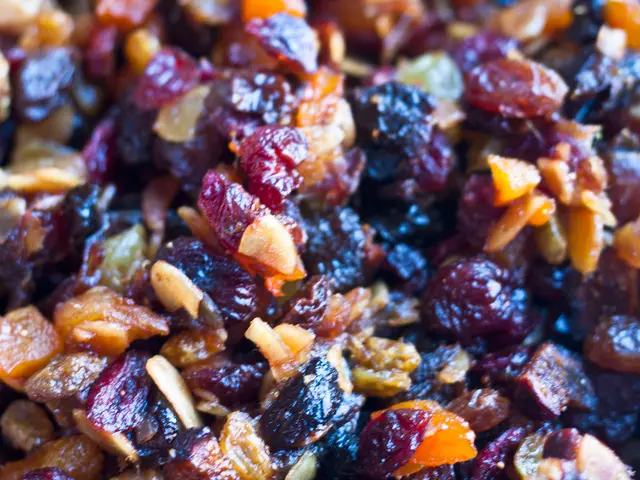Consuming Sugary Beverages Can Lead to a High Risk of Developing Type 2 Diabetes
A comprehensive analysis by researchers at Brigham Young University in Utah, along with collaborators from Paderborn University and the University of Freiburg in Germany, suggests there is a significant difference in the impact of sugar intake on type 2 diabetes risk, depending on whether it comes from solid foods or sugar-sweetened beverages.
The new study, published in the journal Advances in Nutrition, found that while consuming sugar in solid foods, such as fruits, dairy, and grains, does not increase the risk of developing type 2 diabetes, the same cannot be said for sugar-sweetened beverages like soft drinks, sports drinks, and fruit juices.
Sugar-sweetened beverages: A risk factor
The research indicates that each 12-ounce daily serving of a sugar-sweetened drink increases the risk of developing type 2 diabetes by 25%, relative to one's existing level of risk. Even one serving per day could pose a risk, according to lead author Karen Della Corte, PhD, Assistant Professor of Nutrition, Dietetics, and Food Science at Brigham Young University.
Fruit juice, often viewed as a healthier alternative, was found to contribute to a 5% increase in diabetes risk with each serving. Della Corte emphasized that no "safe" lower limit has been identified for the consumption of such beverages.
Solid foods: A possible protective factor
The research also shows that an intake of 20 grams of sugars per day from solid foods may have a protective effect against developing type 2 diabetes. This suggests that sugar in these contexts might actually make a person less likely to develop diabetes.
Della Corte and her team were not surprised by these findings, given the recent research on glycemic response, liver metabolism, and the food matrix. They believe that the impact of sugar depends on how it is delivered and consumed, not just the quantity.
The difference between drinking and eating sugars
Sugar in liquids, such as drinks, is rapidly absorbed by the body, causing a surge in blood sugar levels and insulin responses. This rapid delivery overwhelms the body's ability to process it in a healthy way, particularly when large amounts of sugar are delivered without any of the components that typically slow digestion, like fiber, protein, or fat.
In contrast, sugar consumed as an ingredient in solid foods or eaten with foods is absorbed more slowly and is less likely to trigger metabolic dysfunction associated with type 2 diabetes.
Implications for dietary guidance
The study challenges the notion that limiting all sugar intake is the solution to preventing type 2 diabetes. Instead, it stresses the importance of understanding the context in which sugar is consumed and choosing carbohydrates wisely, pairing them with fiber, protein, and healthy fats to slow sugar absorption and support overall health.
In summary, the study raises concerns about sugar-sweetened beverages, particularly soft drinks and fruit juices, and their role in increasing the risk of type 2 diabetes. On the other hand, moderate consumption of sugar from solid foods may provide a protective effect. The researchers call for more nuanced nutrition guidance that focuses on the quality of carbohydrates, rather than simply the quantity.
- The study published in the journal Advances in Nutrition reveals that sugar-sweetened beverages like soft drinks, sports drinks, and fruit juices increase the risk of developing type 2 diabetes by 25%, compared to one's existing level of risk.
- Fruit juice, often perceived as a healthier option, was found to contribute to a 5% increase in diabetes risk with each serving, suggesting no identified "safe" lower limit for consumption.
- Contrarily, the research shows that an intake of 20 grams of sugars per day from solid foods, such as fruits, dairy, and grains, could have a protective effect against developing type 2 diabetes, possibly making a person less likely to develop diabetes.
- The study highlights the importance of understanding the context in which sugar is consumed, emphasizing the need to choose carbohydrates wisely by pairing them with fiber, protein, and healthy fats to slow sugar absorption and support overall health.
- In the realm of health and wellness, this new research underscores the importance of considering not just the quantity of sugar consumed, but also its quality, specifically focusing on the type and form of carbohydrates in one's diet.






